Midwesterners are known for a few things: a love of Ranch dressing, endless rolling farm fields, and being “nice.” There’s a lot to back up all three of these stereotypes. Hidden Valley reveals that more Ranch is sold in this area than anywhere else, for instance, and flying over the so-called “flyover” states, you do see squares of corn and soybeans, soybeans and corn. As for niceness, we more often perform the ritual apology if we run into you on the sidewalk (and it usually starts with “Ope!”). In my small town, we wave to strangers by raising our pointer fingers off the steering wheel at four-way stops. We smile. We make smalltalk in lines at the grocery store and are quick to send a casserole to someone in need.
“Midwest niceness” is a convenient social salve, but it often favors and is most performed by those in the majority. Take Real Life, by Brandon Taylor, in which a gay, black Ph.D. student from the south moves to a Midwestern university town. Wallace finds himself forever under the petty judgements of the predominantly white people around him. Are they Midwestern nice? Possibly. Are they actually nice? Absolutely not. Performing “niceness” is nearly impossible to live up to when your rights, worldview, or livelihood are questioned. Writing a book set in the Midwest, it’s impossible not to consider “niceness” as part of the equation. By deliberately complicating societal expectation of a Midwestern main character, a writer can disrupt the narrative—and its reception by critics.
While working on my debut novel, The Butterfly Effect, I wanted to create a strong Midwestern woman who didn’t really care for social niceties. I wanted to write a character who longed to immerse herself completely in her work, since I was so often drawn out of mine. Early Goodreads reviews of the novel, perhaps expecting something different based on the bright cover, bemoaned my “unlikeable” heroine. One blogger said that they hoped the publisher would add some “humanity to her” before publication day.
Do we need to be docile to be human? I hope not. In the stretch of land from Kansas north to the Dakotas and Nebraska to Western Pennsylvania, we imagine a simplicity personified. Kinder, calmer. Instead, I offer reading suggestions in which Midwestern writers, poets, and characters are unwilling to demur or make apologies to smooth over an issue for the sake of social grace.
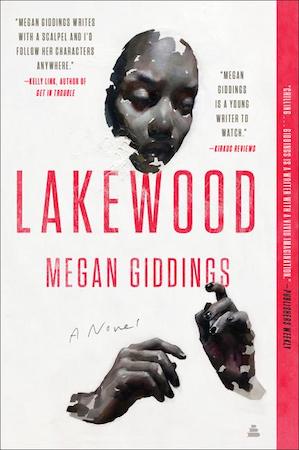
Lakewood by Megan Giddings
Those who fell in love with Megan Giddings’s short stories were thrilled to hear of her debut novel’s publication in March 2020. Protagonist Lena Johnson drops out of college and participates in medical experimentation in northern Michigan, a move which provides not only health insurance but a substantial paycheck to help her family after the death of her grandmother. Lena isn’t unlikeable to the reader, but she can often bristle against others at the facility. Lena’s acerbic wit and clear-eyed observations of the truth of what she has become involved in demonstrate Giddings’ skill. Kelly Link puts it best when she says that Lakewood “compels even as it unsettles.”
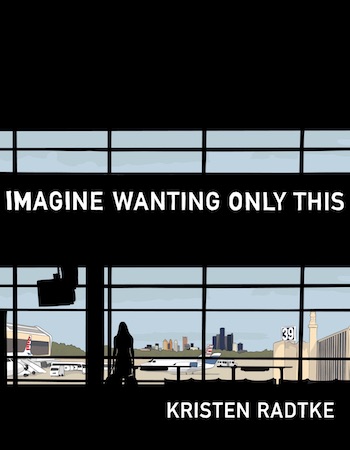
Imagine Wanting Only This by Kristen Radtke
Kristen Radtke’s debut graphic memoir spans time and space to question what we and who we leave behind. Told with journalistic acuity and drawn with artistic grace, Radke’s narrative is sometimes brooding and slashed with the grief of losing her uncle. It weaves family history, the landscape of Midwestern towns long forgotten, disasters, and Radke’s own journey to discover what is actually important.
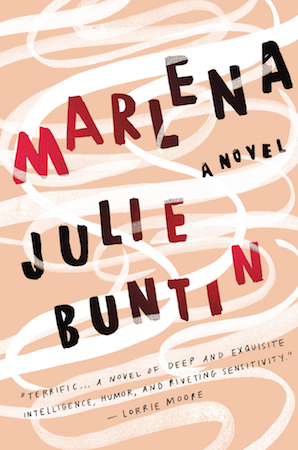
Marlena by Julie Buntin
Another Michigan novel, Marlena tracks the unhealthy friendship of Marlena and Cat. Mixing flashback with a present narrative, Buntin marks the threads of a disordered friendship, hedged by substance abuse, playing hooky, and ultimately the untimely death of the title character. This novel is just as much about poverty and class as it is about the either misunderstood or too well-understood title character.
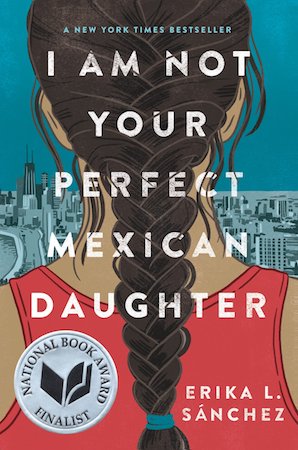
I Am Not Your Perfect Mexican Daughter by Erika L. Sánchez
Too often, even Midwesterners leave Chicago out of their accounting of the Midwestern experience, as if its more diverse population somehow excludes it from geographical and economic factors which define this region. This—let’s not be coy—is a racist sentiment. A key, uniquely Chicago novel is I Am Not Your Perfect Mexican Daughter. This young adult novel follows Julia as she comes to grips with the death of her sister and her own longing for something different than the dreams and ambitions of her Mexican-immigrant parents. Julia states, “It’s easier to be pissed, though. If I stop being angry, I’m afraid I’ll fall apart until I’m just a warm mound of flesh on the floor.” Rife with teenage longing and a certain twinge of adriftness, this novel is thrilling.

God Land by Lyz Lenz
Lenz wasn’t born in the Midwest, but she’s fought for it harder than most. In her debut nonfiction collection, she examined the way that politics and culture intersect in the region, including personal experience, interviews, and deep dives into local history. Did she get into fights? Not physically, but she doesn’t back down from her stances in this book or in her now-disbanded column in the Cedar Rapids Gazette. She followed this book up with Belabored, which unapologetically examines maternity and motherhood in America, and is also highly recommended.
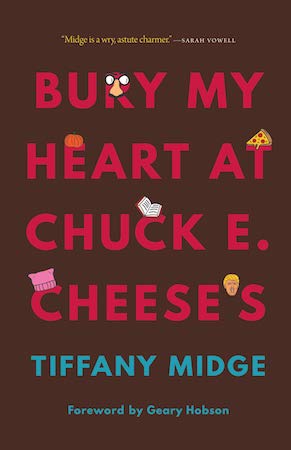
Bury My Heart at Chuck E. Cheese’s by Tiffany Midge
Part satire, part personal essay, Bury My Heart closes the gap pointed out in its back cover copy, which asks“Why is there no native woman David Sedaris?” Published in late 2019, Midge’s collection refuses to be pinned to a particular form or topic—pretendians, the death of her mother, Standing Rock, the political landscape in the Trump era. Midge’s biting commentary is as sharp as it is unapologetic, and the poignant personal reflections hit just as deeply.
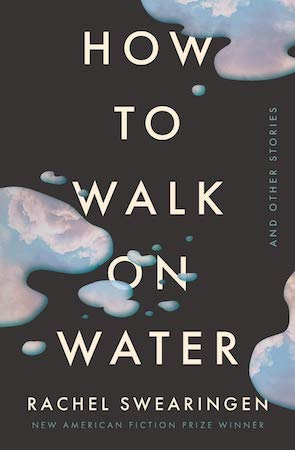
How to Walk on Water by Rachel Swearingen
Swearingen’s debut short story collection from New American Press is at points noir and at points surreal. Her stories interweave violence, both personal and societal, with a moody backdrop. The settings keenly focus on the Midwest, with a few exceptions. A few standouts: “Notes to a Shadowy Man,” which follows a British-expat nanny in the Twin Cities and “Felina,” a truly unsettling story about a banker and the extremely unsettling visual artist he becomes obsessed with. Highly recommended— haunting and haunted.
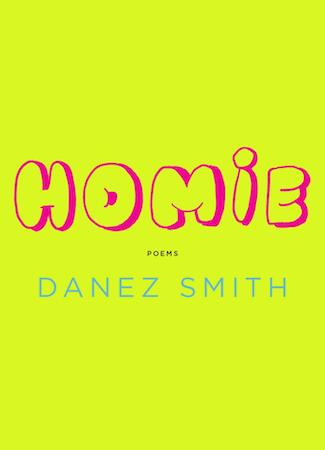
Homie by Danez Smith
Smith, a St. Paul native, likely grew up surrounded by Garrison Keillor worship, but their poetry isn’t actively a response to it. In fact, Smith’s poetry insists you take it on its own grounds—or don’t. No one is forcing you to read it. In an interview with The Rumpus, Smith stated “My most annoyed thing from workshop in undergrad was somebody saying, ‘I don’t understand what this is’ … What that translates too is that you’re creating poems for the most middle-of-the-road, straight, white, Midwestern aesthetic of a person, which maybe poems do. But sometimes I write a poem, and it’s for fat, black, gay dudes who eat too much chicken on Friday.” Smith’s Homie is their third collection and focuses on friendship and rage. Reviewer Elizabeth Hoover wrote succinctly, “the book offers the opportunity to witness ‘the miracle of other people’s lives’ and will challenge you to consider how and why that miracle is dismissed in countless daily acts of racial aggression.”

The Exact Nature of Our Wrongs by Janet Peery
Peery was a 1996 finalist for the National Book Award for her debut novel, The River Beyond the World. In this 2017 second novel, Peery tracks seven distinct characters as they adjudicate the life and death of the family patriarch, retired judge Abel Campbell. What struck me most about this novel was how utterly and believably screwed up many of the characters were. The complicated tapestry of this family drama is at times hilarious and at times mournful, but most often a commentary on mental health and drug abuse in rural communities.

The Only Good Indians by Stephen Graham Jones
Stephen Graham Jones’ 2020 novel is surprisingly funny for how murderous it is, at least at points. Told in a variety of perspectives, it tracks the aftermath of one event on the Blackfeet reservation ten years previous. The narrative questions whether we can ever outrun the consequences of our pasts. Graham Jones’s answer? Probably not. Many sections are told with such close perspective that it feels like the reader has participated in the crime and retribution, and complicit to both, disturbs as only good horror can.
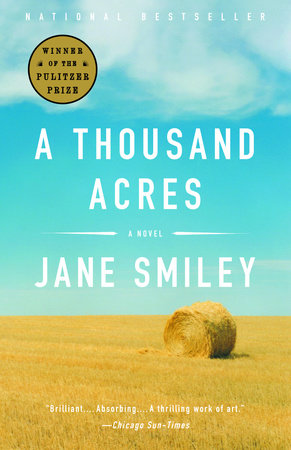
A Thousand Acres by Jane Smiley
I couldn’t make this list without the 1992 Pulitzer Prize Winner for Best Novel. Smiley retells King Lear during the farm crisis set in Iowa and told by the perspective of one of the villains in the original play. Ginny (whose counterpoint is Goneril) becomes at once a sympathetic and still deeply conflicting character for readers. This novel is a personal touchstone, and I often think of Smiley’s balance of the scene of poisoned canned goods, and in turn, a land poisoned by agriculture.
The post 11 Books About Midwesterners Who Aren’t Trying to Be Nice appeared first on Electric Literature.
Source : 11 Books About Midwesterners Who Aren’t Trying to Be Nice










